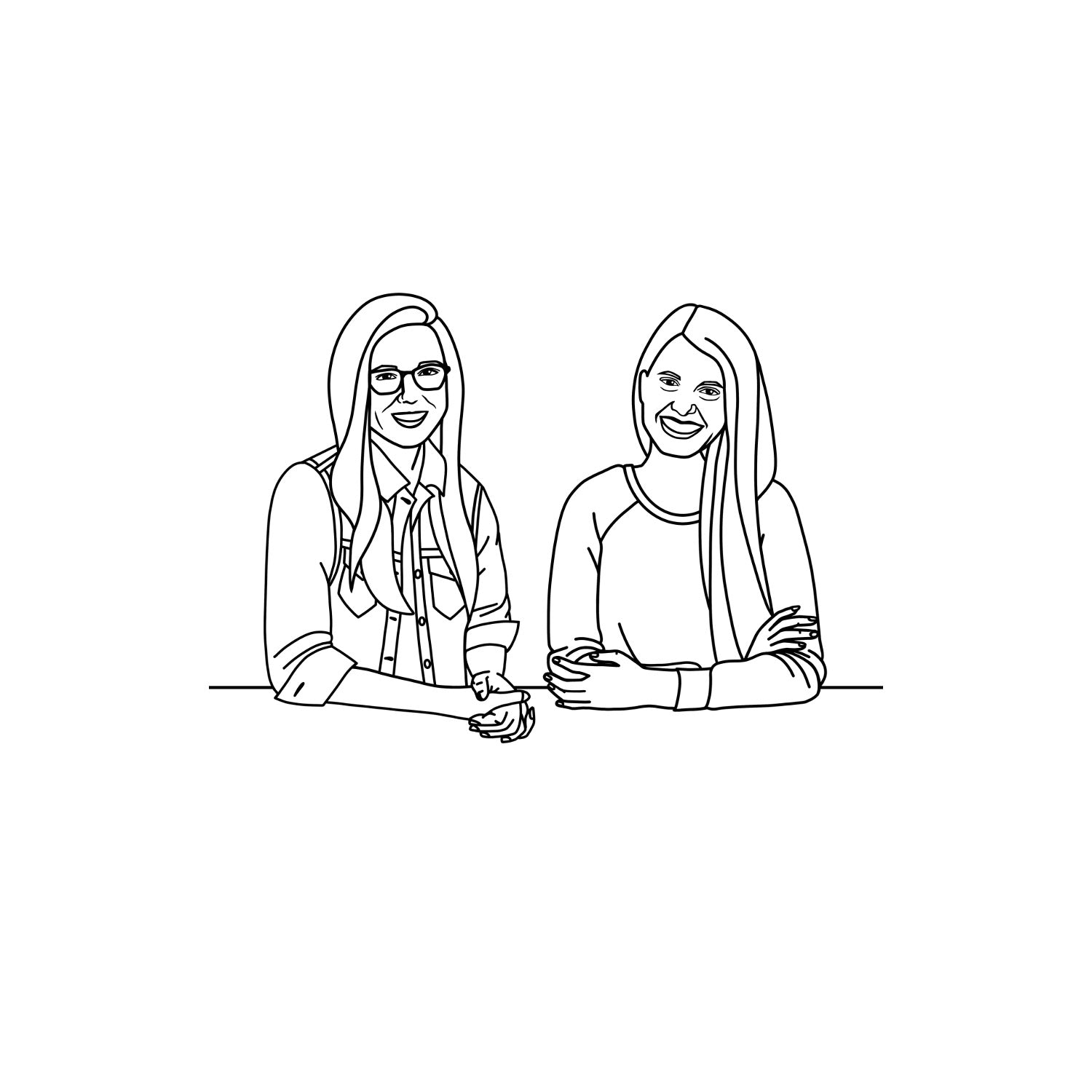
We’re Jess & Olivia, the co-founders of Pareto...and total retail nerds. We love to reflect, question, and discuss all things retail. We have a lot to share with you (besides great product), but we thought we’d begin with why we started Pareto.
Our love for the retail industry goes way back. Jess even grew up in what they call the “mall mecca” of the US, northern New Jersey. What started as summer jobs as store associates turned into the beginning of our careers. We began our professional lives working in-house and then as consultants for some of the best apparel brands in the world, learning the ins and outs of merchandising, marketing, manufacturing, store operations, and more. We loved how relatable the industry was to everyone – we all visit stores, we all buy products, we all are consumers.
Over time, we started to feel disenchanted with the industry that we thought we’d work in forever. The entire industry is centered on one word – more.
More product, more often.
And for what? Ultimately, we noticed this constant need for more is creating a lose, lose, lose situation. For women. For brands. For the environment.
FOR WOMEN. The constant need for more results in women wasting time and money sifting through endless racks of clothing, trying to find pieces they’ll actually wear.
We saw this in the data, in our own closets, and in our friends’ closets. According to the Business of Fashion and McKinsey 2019 State of Fashion report, the average person buys 60% more clothing today compared to 15 years ago, as they try to find the pieces they’ll actually wear. After sitting in the closets of friends, family, and total strangers, we found that women wear 20% of their closets, 80% of the time. The rest of their closets are rarely, if ever, touched.
FOR BRANDS. The constant need for more results in companies running overly complex businesses that are difficult to operate profitably over the long run.
Prior to launching Pareto, this was our professional day-to-day. Brands need to coordinate eight or more seasons of new product launches per year to ensure constant “newness” for the customer to buy. Brands need to manage distributing this inventory to an ever-growing store footprint across the country. Brands need to invest in planning endless promotional games to move through this inventory before the next launch arrives. This “growth at all cost” mindset creates a financial structure that is proving challenging to operate profitably (just look at J.Crew’s bankruptcy, Brandless’s halt of all business operations , Outdoor Voices losing $2 million per month despite strong sales). The New York Times did a great piece on the unraveling of the industry.
FOR THE ENVIRONMENT. The constant need for more is resulting in an industry that has a vast negative impact on our planet and people (check out the documentary The True Cost for a great educational overview of the industry’s challenges).
Environmentally, the industry contributes to an estimated 10% of global carbon emissions and ~40 million tonnes of textile waste is sent to landfills or incinerated each year. Socially, the need for constant newness at a low cost comes at the expense of worker rights, with apparel workers around the world often facing low pay and horrible working conditions. The recent ban of cotton from the Xinjiang region of China due to forced labor is finally bringing attention to this issue.
How can the retail industry continue to operate this way when all three major stakeholders are losing?
We’ve set out to build something better. At Pareto, we challenge this need for more. We’re here to show the world the power of fewer, more purposeful – for women, for brands, and for the environment.
We are just beginning our journey and feel very lucky to have you along for the ride.
We want to hear from you in the comments below! What percent of your closet do you wear on a regular basis? What makes you end up with clothing in your closet that you rarely wear – the hard to resist sale, the “good enough for now” mentality, the one-time special event?

Comments (0)
Back to Our Musings